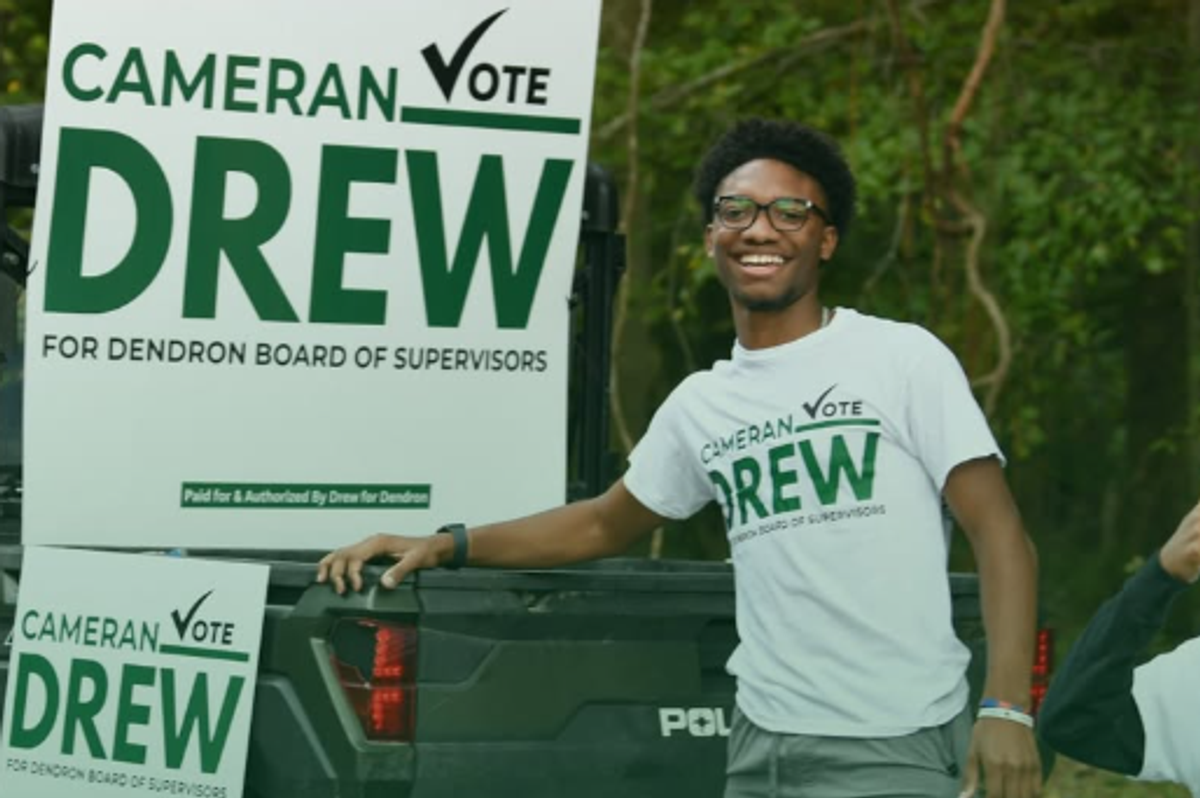19-year-old wins county election, defeating his favorite high school civics teacher
"We were both respectful about it, so it was never an awkward moment."
19-year-old Cameran Drew wins county election, defeating his favorite high school civics teacher.
It's improbable that a teenager could win public office in the United States, let alone do so by besting an opponent he once called his teacher. But Cameran Drew, a pro-business liberal from Surry, Virginia, did just that on November 4 when he defeated conservative Kenneth Bell, 44, a civics teacher at Surry County High School, in a contest for the Surry County Board of Supervisors. Bell was appointed to the seat six months ago, after the previous supervisor resigned.
Drew, a student at Virginia Peninsula Community College, was in Bell's high school class last year and called him his favorite civics teacher. He defeated Bell in a close race that was decided by just eight votes, 345 to 337.
"I wanted this job because I knew I could serve the people," Drew told CBS News. "I knew I could be an advocate for the youth and be an advocate for our county."
In a rarity for today's politics, both candidates refrained from personal attacks, and things never got uncomfortable. "We were both respectful about it, so it was never an awkward moment," Drew said. In fact, Bell even backed up his opponent when his age was questioned. "Yes, he's young, but he's really invested in trying to make a difference," Bell said.
After the election, Bell had nothing but positive things to say about his former pupil. "He would have been formidable against any opponent against whom he would have run," Bell told CBS News.
- YouTube www.youtube.com
Lowering property taxes was a big issue for Drew's campaign. Surry's real estate tax rate is higher than that of neighboring Sussex County and the City of Williamsburg. "The biggest issues I ran on were opportunities for the youth and lowering the tax rate," he told Virginia Peninsula Community College. "I made a promise to the folks that I will ensure that I will do my best to lower the tax rate for them, ensure I will do my best to establish a stronger tax base for them, and bring other local businesses within the county."
Drew understands the needs of the local business community because he's an entrepreneur himself. He owns Prez Productionz, works as a motivational speaker, and runs an apparel business. "I always tell people and other young folks that if you're into politics, you've got to also know some business because politics is business," he said. "It correlates so much with business, and I know that this degree will help me within my business, my foundation, and my political journey."
In addition to helping businesses and the county's youth, Drew believes in working across the aisle with those he may not agree with to help his constituents. "Every opinion is valuable because it sparks conversation, and that is what civil discourse is all about. Even when disagreements arise, the goal should be to find shared ground and move forward together. I firmly believe that 'Iron sharpens Iron,'" he said in a candidate statement.
Drew was sworn into office on December 2. He plans to transfer to Virginia State University after graduating from VPCC in spring 2026.
- A hardcore white supremacist changed his entire worldview after taking MDMA during a study ›
- More than a career: How two project managers are driving environmental change ›
- Scientists studied the bones of ancient women, and we might need to rethink 'women's work' ›
- Hillary Clinton sent an inspiring letter to this 8-year-old girl who lost her school election by just one vote. ›

